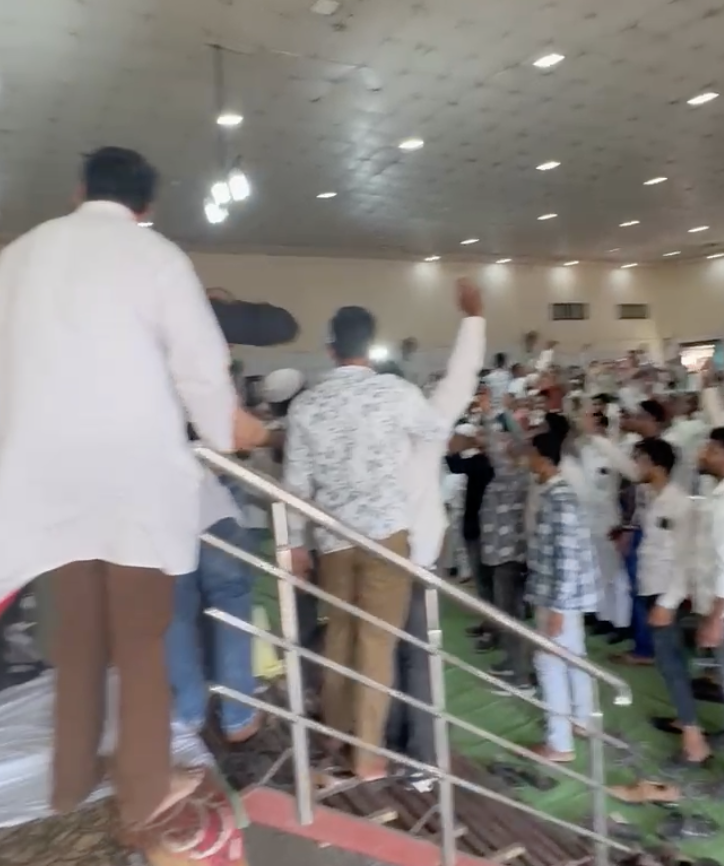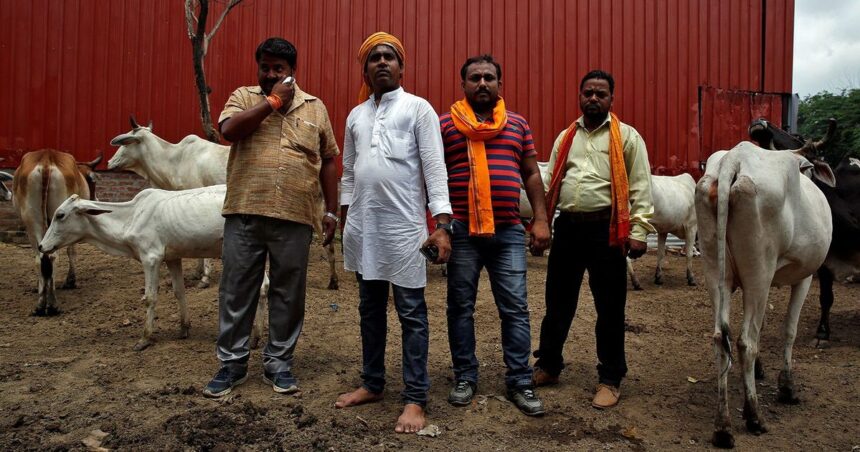In Maharashtra, ‘Gau Rakshak’ Groups Target Muslim Qureshis Over Buffalo Meat Trade
Mumbai: For over a month, butchers from the Muslim Qureshi community have been leading a unique protest across Maharashtra. In the face of violent attacks from self-proclaimed “gau rakshaks” or “cow protectors” in the last decade, members of the community have decided to indefinitely stop dealing in buffalo or other bovine meat.
The decision, born of desperation, comes despite the fact that it directly impacts their livelihood and marks what is possibly the first time that such a coordinated and massive resistance to the violence is being seen from within the community.
The community’s condition, members say, has worsened with the amendment to the Maharashtra Animal Preservation Act of 1976 in March 2015. The amendment, which received presidential approval after the Bharatiya Janata Party came to power in both the state and Union governments, banned the slaughter of animals belonging to the cow progeny in the state. This amendment prohibited the slaughter of bulls, bullocks, oxen, and cows for meat. Shortly after this change in the law, violence by Hindutva men claiming to be cow protectors also increased dramatically.
‘Almost everyone in the community has been attacked’
Helpless and targeted, the Qureshis – a marginalised Muslim community – under the banner of the Qureshi Jamaat, have been holding meetings at district and taluka levels across Maharashtra to convince the community to abandon the profession entirely. “Our condition is already dire. We need to do this to show the government the impact our decision will have, not just on us but also on the farming community of the state,” said Aziz Qureshi, who heads the Qureshi Jamat in Nanded.
The boycott campaign began in Nagpur over a month ago and gradually spread across the state. Almost every day, an event or two is being organised across districts. The community is also deliberating on how to overcome the economic setback that they are suffering with the boycott in effect.
Earlier this week in Nanded, many men engaged in butchering gathered at the district headquarters. “Almost everyone has experienced being apprehended, harassed, or violently attacked by Hindutva men,” Aziz claims. He says these attacks have persisted even though butchers in the district have long stopped dealing in beef. “Buffaloes are not banned, but it doesn’t matter to the attackers. All they see is a Muslim man dealing in meat; and that’s enough for them to launch themselves at him. Most of these attacks are done in connivance with local police,” alleged one butcher, who was brutally beaten last year. He claimed the police refused to register his complaint even though videos of the attack were circulated across social media platforms.

Laws of the land
Buffalo slaughter, under the amended law, is subject to restrictions. Before a buffalo can be slaughtered, the owner must obtain a certificate from a veterinary doctor confirming that the buffalo is unfit for milking and not pregnant. Only with this ‘fitness certificate’ can buffaloes be sent to a slaughterhouse.
Farmers, who rely on their cattle for tilling farms and milk production, depend on the Qureshis when the animals age. This is the only way they can earn money to invest in younger buffaloes. With the Qureshi community unanimously deciding to abandon the profession, farmers, mostly of marginal land holding and belonging to Bahujan communities, will be severely affected, especially at a time when farmer suicides are alarmingly high in the state. Government records show 767 farmers died by suicide between January and March this year alone.
Many in the community claim the government has systematically closed slaughterhouses in talukas and failed to appoint veterinary doctors in areas with significant Muslim populations. For instance, in Nanded district, Aziz claims veterinary doctors have not been appointed at the taluka level for over 10 years. There is only one functional veterinary unit in the district headquarters. “With no certificates or abattoirs available, many butchers have resorted to slaughtering in their homes,” a local community leader in Nanded shared.
Another butcher from Parbhani, reiterating the point, added that, alongside legal issues, slaughtering in residential spaces also poses serious health concerns. “The municipal authorities are aware of the condition, but they do nothing to help us in cleaning up,” the butcher from Parbhani says. Slaughtering at ones own house is illegal and FIRs have been registered enmasse against many butchers in Marathwada region.
‘Keeping a check’
On July 14, Minister of State for Home (Rural), Pankaj Bhoyar, announced in the legislative council that the government will introduce a new law against beef smuggling in the state and withdraw cases against “gau rakshaks” who have been “taking the lead” in exposing beef transport. This law will supplement the existing prohibition on cow slaughter. The government is also deliberating over invoking the stringent Maharashtra Control of Organised Crime Act (MCOCA) against “beef smugglers”.
Deliberations over this new law began after the seizure of 57,000 kilograms of meat in two containers at Lonavala in March 2025. The police claimed the meat was “beef” and it was intercepted while being transported to Jawaharlal Nehru Port Trust (JNPT) for export. A Special Investigation Team (SIT) has been formed to investigate the case.
The BJP-led government’s response to alleged beef seizures has been disproportionate compared to the threats, extortion, and violence the Qureshi community faces regularly. Gau rakshaks are celebrated as crucial vigilante groups “keeping a check” on illegal slaughtering in the state, and incidents of violence are reported only when public pressure forces police action.
Latur-based activist Juned Atar who is the editor of the page
Marathi Musalman, says the Qureshi Muslim identity is being systematically criminalised. Having closely tracked incidents of violence in the state, he observes a pattern. “The vigilante groups are well-networked across states. As soon as a transporter leaves one region, tip-offs are sent to vigilante groups through various networks. Often, they arrive with a police contingent,” Atar says.
He notes that local transporters, often merely drivers and not cattle owners, are violently attacked, with the attacks invariably justified in the name of gau raksha.
Recently in Latur, Atar says, a man was apprehended while transporting cattle. “The cattle were only being moved, not taken for slaughter. But the local police stopped the transport, and the cattle were handed over to a local gau raksha organisation,” he says. Within days, these cattle were seen in the market for slaughtering. “With the help of local activists, he compelled the police to register an FIR against the so-called gau rakshaks,” Atar adds. But such cases are just few and far between.
Kaizer Patel, an All India Majlis-e-Ittehadul Muslimeen (AIMIM) party activist and lawyer in Chhatrapati Sambhajinagar district, says the economic impact is “beyond the state’s imagination.”
“It’s not just the butchers; the entire economy dependent on it will be affected,” he said. After consulting Qureshi organisations across Maharashtra, he estimates conservatively that 5,000 cattle are slaughtered daily. “Even if one animal is sold for around Rs. 20,000, the sales amount to roughly Rs 300 crores per month,” he says. He also mentions private companies operating on a larger scale. “In Chhatrapati Sambhajinagar alone, over 800 buffaloes are sold daily to a large private company at over Rs. 40,000 per buffalo. The monthly turnover in just one district reaches Rs 100 crores,” he explains. Besides the Qureshis and farmers, those involved in transportation, catering, and the hotel industry will also be impacted by the decision, Patel says.
Also Read: Trump Claims Five Fighter Jets Downed in Ongoing India-Pakistan Conflict







